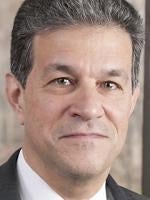Among the bills signed by New York Governor Hochul at the close of 2021 – and in addition to the bill that significantly changed New York’s insurance disclosure requirements that was the focus of our previous posts, “Amendments to New York’s Onerous New Insurance Disclosure Requirements May Be Imminent” and “New York Ends the Year with Onerous New Insurance Coverage Disclosure Rules for Defendants in Product Liability Litigation” – was a significant change to New York’s rules of evidence. On its face, it appears this change will favor the plaintiff in product liability litigation, since it is the plaintiff that typically seeks to enter into evidence unfavorable statements made by the defendant’s rank-and-file employees that are not part of management. New York Senate Bill S7093 creates a new provision in the state’s Civil Practice Law and Rules. CPLR 4549, as passed, permits the admission into evidence an opposing party’s statement at trial if it was made by a person authorized by the opposing party to make the statement on the subject or if it was made by the opposing party’s agent or employee within the scope of that relationship and during the existence of that relationship. As such, this new evidentiary rule for the New York courts closely follows the approach seen in the federal courts under Rule 801(d)(2)(D) of the Federal Rules of Evidence.
The question of “authority” typically vexed practitioners and courts, and application of the hearsay rules often prevented the admission into evidence of an out-of-court statement by an agent or employee of an opposing party – typically a corporation. Citing the “Speaking Agent” rule, cases in New York held that such statements were admissible only if the employee or agent had “actual authority” – i.e., not “implied authority” – to speak on behalf of the party. This, in turn, often resulted in an in-depth, and case-by-case, analysis of the agent/employee’s relationship with the party. The cases usually limited any finding of “actual authority” only to those agents and employees in the higher levels of management, following the reasoning that any other level agent/employee lacked the required implied authority to speak for the party.
The Bill’s Sponsor Memo notes that CLR 4549’s new evidentiary rule was introduced at the request of the Chief Administrative Judge upon the recommendation of his Advisory Committee on Civil Practice. It justified the change on the basis that old rule “exclude(d) reliable proof of an event, even though the employer as a party might not be treated unfairly by admissibility, either because the statement is true and made by a person with relevant knowledge, or because the employer is able to introduce other proof in opposition to … the hearsay statement.”
The memo gave two examples of formerly inadmissible hearsay statements that may now be admissible under the new evidence rule:
-
An employee-driver’s admission of negligence or that he was at fault. For example: “I am sorry I knocked you down …” (held inadmissible previously in Schner v. Simpson, 286 AD 716 (1st Dep’t 1955), and
-
A maintenance worker’s statement that, “This is the third time that I fixed this railing and I’m getting sick of it.” (held inadmissible previously in Raczes v. Horne, 68 AD 3d 1521 (3d Dep’t 2009).
The Sponsor Memo reiterates that an employee’s statement would remain inadmissible if it concerned a matter that was not within the employee’s scope of employment. “We believe that the federal approach is an improvement over the current state of New York decisional law, and that trial judges will exercise appropriate discretion to exclude such hearsay evidence when there is inadequate foundation or indicia of reliability.”
New York remained one of the few states to recognize and apply the Speaking Agent rule, but its courts were reluctant to change it without legislative action. [See Loschiavo v. Port Authority of New York, 58 NY 2d 1040 (1983).] A finding of “actual authority” as a basis for admissibility remains unchanged by the new rule and case law will be needed to develop the new rule’s jurisprudential approach to “scope of that relationship” and “existence of that relationship.” For example, what happens if the employee-driver’s admission is not made at the scene of the accident and immediately thereafter? What if the statement were made days later and during a company-sponsored social event? Was it made during the employee’s “relationship” with the employer? Time will tell and federal case law interpreting FRE 801(d)(2)(D) will be instructive.
In the end, corporate defendants will need to recognize the larger pool of employees and agents that can effectively bind the company with a post-accident admission regarding fault or lack of care. Proper accident response and Public Relations training for non-management employees will be even more critical.
CPLR 4549 took effect immediately upon Governor Hochul’s signing and applies to all cases pending on or after its effective date.



 />i
/>i

